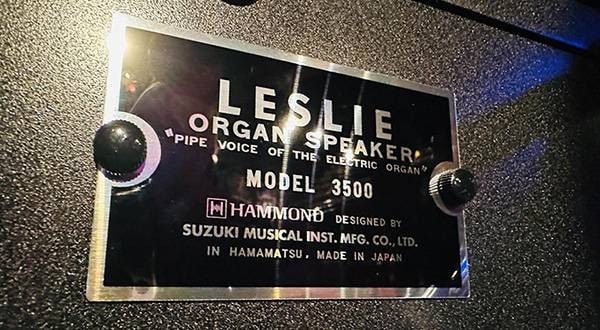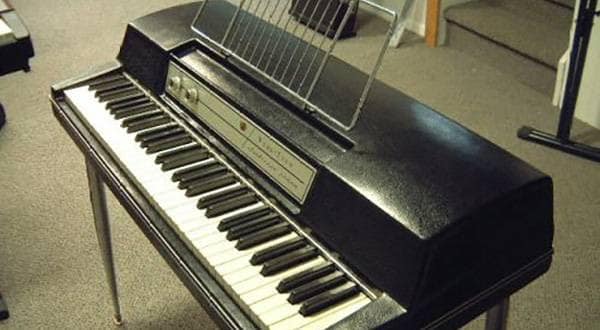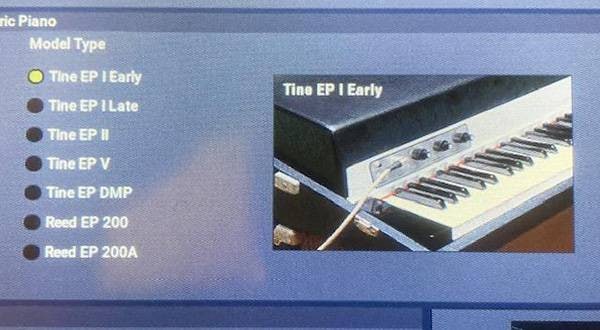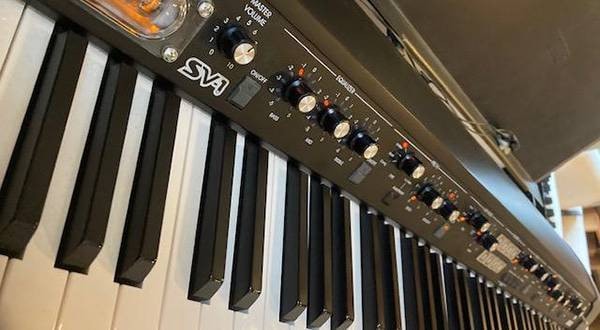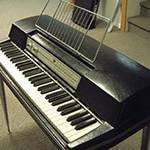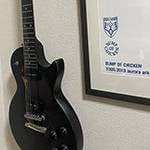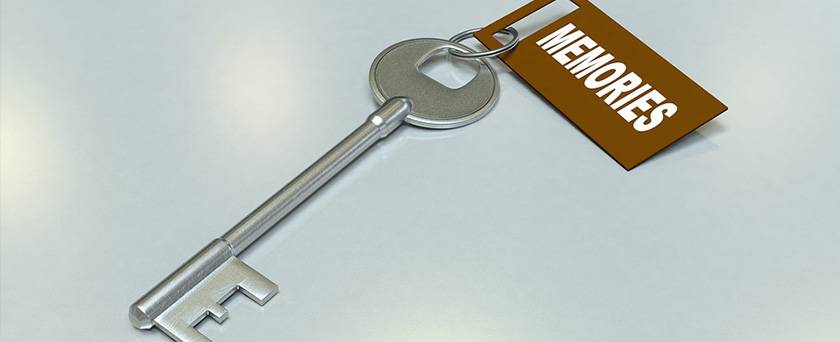
Everyone has a bad memory
When you start playing an instrument, or with a band, or other music activities, daily practice, getting a sense and feel for the music, memorizing phrases, memorizing songs, and "remembering" are indispensable elements.
There are probably a lot of you out there who compare yourselves with the people around you, saying "I improve more slowly because my memory is not as good as other", or "I can't memorize a song even if I listen to the song for hours".
Every day, we are exposed to vast amounts of information. If you remember all the non-important information such as postings on SNS timelines and advertisements hanging in trains that you happen to see, you will lose the location of important information when you want to retrieve it. So the human brain decides something is "not important", and is designed to forget this information.
People who say "I have a bad memory!" are actually very ordinary people. "People who have a good memory" do not have an exceptionally high brain processing power, but they understand that things are easily forgotten, and they make an effort to make these "unforgettable ideas".
The mechanism of memory. Declarative memory and non-declarative memory
There are two types of memory: "declarative memory" that you can remember with your head and "procedural memory" (exercise memory) that you can remember with your body.
The hippocampus, which is said to be a temporary storage place for memory, plays an important role when making declarative memory (remembering it with the head).
Once you get some information, it will be stored in the hippocampus, a temporary storage place for your memory, for tens of seconds to up to about two weeks.
In the meantime, if the information is accessed many times, hippocampus decides that "this should not be forgotten!", and saves it as "important information", and uses that information as a "long-term memory vault", moving it to the "head lobe".
There are two criteria that the hippocampus judges as important information
There are two criteria that the hippocampus determines to be important information. It is "information that is used many times" and "events that moved the heart."
The former moves the information to the long-term memory vault by repeatedly practicing, reviewing, and outputting, saying, "I use this information a lot, so I'll try to retrieve it immediately."
The latter has a mechanism that is strongly memorable due to emotionally moved events such as emotions like "your first stage performance that was extremely tense" and "an unforgettable broken heart".
Opinion memory and "episodic memory"
Declarative memory is divided into "semantic memory" and "episodic memory".
"Semantic memory" is a type of memory related to information and knowledge, so-called "memorization". Memorizing the lyrics and memorizing the procedure of a phrase is semantic memory.
"Episodic memory" is a memory of events, experiences, and similar memories. For example, episodic memory is the memory of when you went on an overseas trip, when you went to a live concert, or when you went to a lesson or seminar.
Semantic memory is hard to remember and easy to forget. Episodic memory is easy to remember and hard to forget.
Ingenuity to remember in "episodic memory"
◎ It is easier to remember if you practice in connection with the memory you know
For example, drums have a rhythm pattern called "8 beat".
Beginners often start practicing with the 8 beat pattern. Those who can learn from "episodic memory" have already said, "This rhythm pattern is the pattern I saw (heard) at that time," such as the experience of going to live performances and concerts, and the experience of playing other musical instruments such as guitars. It is easy to learn and hard to forget because it is well linked to memory (long-term memory) such as sounds and images in you.
People who try to memorize with "semantic memory" do not connect sounds and images with their own memory, but follow the steps in front of them in order. This will slow down your learning and make it easier to forget.
When you acquire new skills and knowledge, try to connect them with your own events, experiences, and memories.

No one forgets how to ride a bicycle. "Procedural memory"
Learning an instrument is "exercise" that you can learn by moving your body.
Memories that are memorized by moving the body, such as riding a bicycle or hitting a drum, are called "procedural memory (exercise memory)".
The "basal ganglia" and "cerebellum" play a central role in "procedural memory."
The "basal ganglia" works to fine-tune the movement of muscles and move smoothly when the brain moves and stops the muscles of the body.
When practicing musical instruments while making many mistakes, muscles and tendons are moved by "exercise" like playing a musical instrument, and many nerve cells work, so that "basal ganglia" and "cerebellum" neuron network learns the correct movements and is a mechanism that easily remains in the brain as "procedural memory".
Once you memorize the procedural memory, you will never forget it.
I remember when I rode a bicycle for the first time in 5 years, and even if I hit the drum for the first time in 10 years, I can hit it like I did in the past.
Ingenuity to remember with "procedural memory"
◎ Write, sing, play and remember
By actually moving your body and using your motor nerves, you can easily memorize something as "procedural memory". Therefore, it is difficult to memorize a song just by "listening", and it is not possible to play by "just watching" a video or lesson video.
・ Speak out (speak, sing melody or rhythm, etc.)
・ Write (write in notes and words)
・ Move your body (actually play an instrument, or air drum, air guitar, etc.)
In this way, let's actually move and remember.
For example, when memorizing a song, even if you don't know the score or notes, it is effective to just write it out on paper as far as you can understand, such as "verse", "chorus", and "break". It will be easier to remember if you move your hand while singing the phrase.
Not only "reading" but also "writing" with your fingertips, "reading aloud", and "speaking" use your motor nerves become an unforgettable memory.
It is indispensable to repeat "repetitive practice" to improve on an instrument.
However, it is not about reading a book many times, listening to a song for hours, watching a video many times, but playing, hitting, reading aloud, singing a rhythm, writing, etc., is needed.

Other ideas
◎ Group by your own ideas
For example, it is difficult to remember if the numbers such as "946564830475" are lined up, but if you make groups like "9465-6483-0475", it will be easier to see and remember.
I think that many people buy a score and start practicing when memorizing a song, but reading the score in order from the beginning and following the steps is like remembering the above numbers in order. It's very inefficient.
It is effective to roughly summarize the composition of the song such as "A melody" and "chorus", or to make groups such as "2 beats", "1 bar", "4 bars", and "8 bars" so that you can memorize the phrase.
In addition, there are many basic drum exercises such as "double stroke", "paradiddle", and "flam", but "this and this are useful for training the left hand" and "this and this are useful for speeding up". You can practice efficiently by grouping and practicing within yourself, like "this movement is used in the song you are playing now".
◎ Memorize by sending information
To improve, you need three elements: "input", "output", and "feedback".
"Input" is to input information such as seeing, reading, and listening.
"Output" is to act by writing, speaking, singing, hitting, challenging, and so on.
"Feedback" is to look back on the effects obtained from the output and make improvements and correct the trajectory.
"Sending something on SNS" is easy and effective. Information dissemination is to process what you have studied (input) and send it (output).
And then you get “likes”! I look back at my posts many times and correct the trajectory (feedback). It's packed with three elements to improve.
Posting your impressions of the book you read on your blog or posting a video of you practicing is very good output. Also, studying and practicing on the premise of transmitting information is very effective because it enhances the information processing capacity.
◎ Teach people
"Teaching" is the act of processing information within yourself, summarizing it, and verbalizing it into words that the other person understands. "Teaching" raises the bar, but "telling your friends what you think of the book you read" and "telling your family what you took lessons" are also very effective.
The part-time job I used to do had the job title, "trainer".
It was a position given to a part-timer that has become able to do a certain amount of work, and it is a position to teach and nurture a new part-timer.
This means "teaching" a job, which gives the teacher a deeper understanding of his or her work and a sense of responsibility for the job. I think it's a great system that "nurtures trainers further by letting trainers train newcomers."
I can't improve if I feel sick
When I was able to do something I couldn't do before, I said, "I can do it! "Hooray! I may feel happy. In my head, I think of the fanfare when I completed a level in Dragon Quest.
At this time, the substance that controls joy, "dopamine," is secreted in the brain. The timing of dopamine secretion is when the goal is achieved.
Dopamine is a substance in the brain that produces pleasure, so when a goal is achieved and dopamine is secreted, the brain encourages you to move toward further goals in order to get more pleasure.
This pleasure is an indispensable element for improving memory.
The essence of the work of the brain is "spontaneity".
In order for the brain to feel joy, it is important that it is not "forced", and the feeling of "choosing for oneself" is essential for improvement.
Even if you practice not to be scolded, or if you practice on the spot when you are scolded, you will not improve. This is because dopamine is not secreted when you are practicing under unpleasant circumstances when you are told "Practice!"
In order to bring out the "independence" of "choosing for yourself", it is important to have a "successful experience" of doing a small thing voluntarily.
You can practice just because it's the basics, or just do what you're told to do. It is difficult to get to a feeling of saying "Hooray!”, which in turn delays progress.
In order to avoid work, I set goals such as "speed up!", "Move my left hand more!", and "make it possible to nail this song" and reach those goals. It is important to choose the exercises you need to do.
In other words, in order to improve, it is important to challenge yourself, achieve goals, and feel "fun" and "joy".
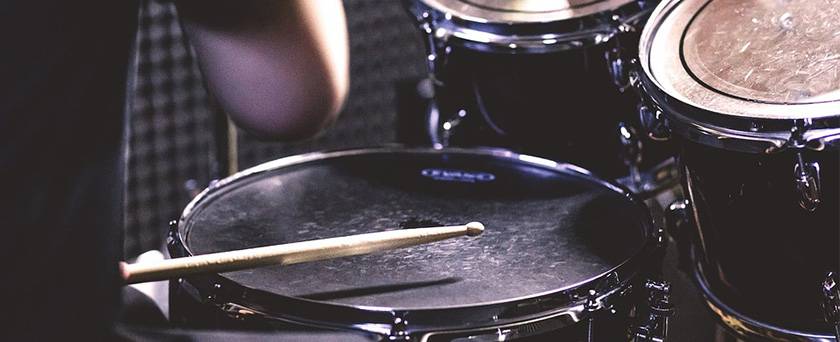
In the end
Even with the same amount of practice, there are people who easily improve and people who find it difficult to improve. It is not a difference in talent or a difference in the ability to memorize, but rather the "thinking" and "approach". If you can analyze yourself and devise a way to keep it in your memory, you can save on a lot of practice time.
Use this article as a hint for your daily practice and studies.






